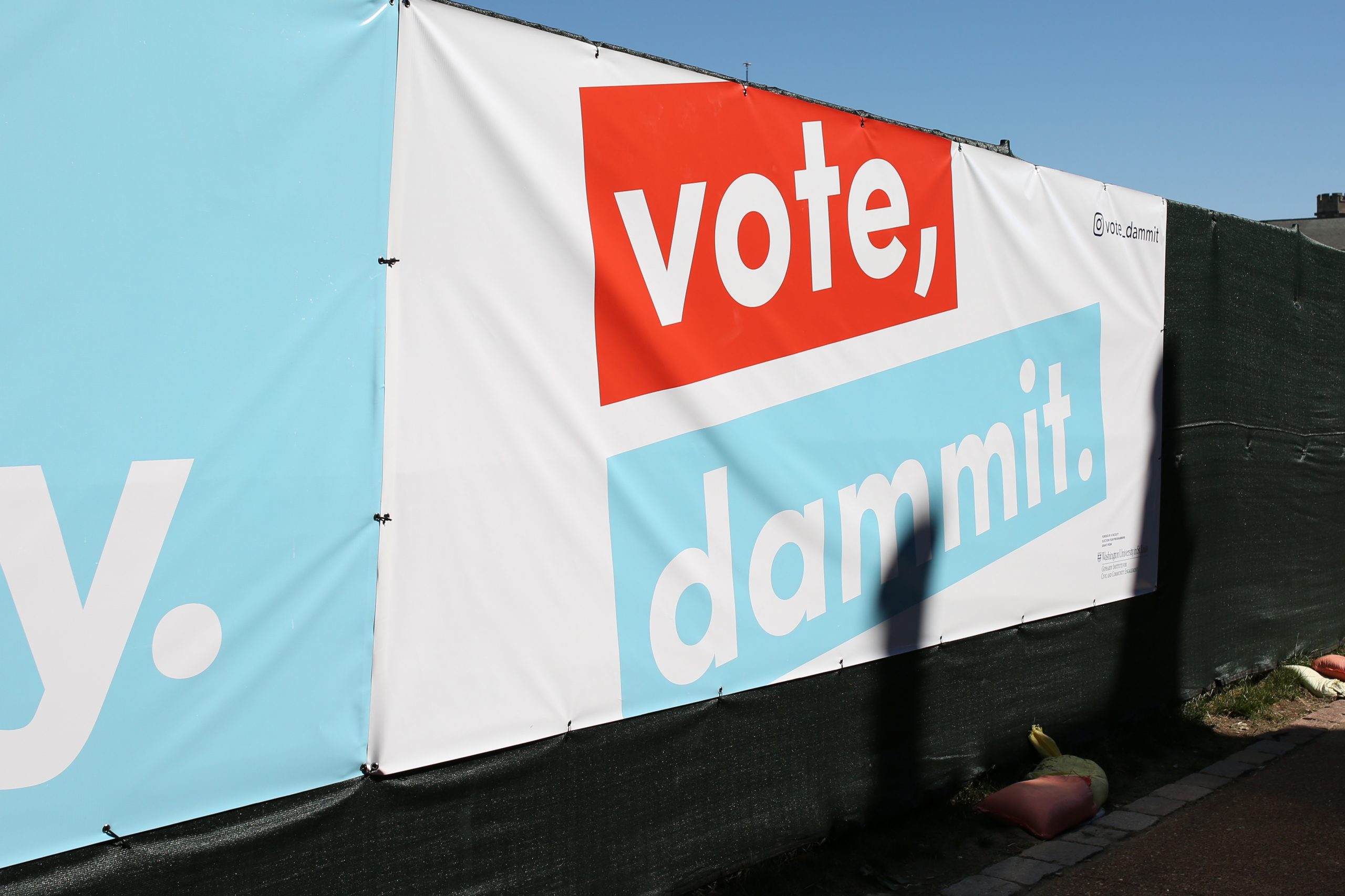Scene
Hoping to get involved with the election on campus? Here are a few different ways to still participate
2020. Here we are again, another election year, with many believing this one to be the most critical election of their lifetime. Washington University is full of first-time voters, and to be doing so in the middle of a pandemic can make learning about what students can do while also remaining safe confusing. Here’s a list of ways that you can get involved in the election on campus this year and remain informed.
 Skyler Kessler | Student Life
Skyler Kessler | Student Life Join student political groups
Wash. U. College Democrats and College Republicans offer great opportunities for students to get involved in local politics and learn about elections. Due to COVID-19, most events have been moved online, but students can still participate in many different things.
For the College Democrats, every Thursday evening Show Me Change, an effort to elect Missouri Democrats that are on the ballot, is hosting student phone banks for politicians such as Cori Bush and Jill Schupp. Past events have also included Missouri Democratic candidates and even Wash. U. professors.
Wash. U. College Republicans host debates and open political discussions. In the past, they have welcomed speakers. This year, they have stated they hope to have phone banks. Furthermore, both clubs plan to host a debate around policy issues and hold it the week before the election.
Get involved in voter outreach with WashU Votes
Want to help educate others about candidates, amendments and the like? WashU Votes, a subset of the Gephardt Institute, focuses on undergraduate students to ensure that they have the tools to become informed voters and engaged in the election process. Traditionally, outreach for WashU Votes involves tabling at the Danforth University Center or somewhere around the South 40, but due to the COVID-19 pandemic, much of their efforts have been geared towards utilizing social media, posting signs around campus and performing outreach in student groups. Otto Brown, WashU Votes’ outreach chair, stated the importance of working with student groups saying how “it’s better when people you know encourage you to vote.”
If you’re interested in joining, they have weekly general board meetings on Thursday nights. Also, to submit a mail-in ballot or an absentee ballot in Missouri, it needs to be notarized. The Gephardt Institute offers notarizing events, which can be found on their website. If you are unable to attend one of the events, you can schedule an appointment with one of the notaries provided on the list (such as Brown).
Volunteer at the polls
COVID-19 has already affected our election in a multitude of ways, from the presidential debates to in-person voting. A common theme for this election will be the long, spaced out, socially distanced polling booth lines. The Gephardt Institute is currently offering poll training for those that want to help make waiting in line a little more enjoyable, whether by giving out snacks, maintaining a photo booth, or other activities. The polling location will be in the Athletic Center and volunteer shifts are two hours and fifteen minutes, so don’t be afraid of the time commitment. Note: You’ll be a poll volunteer, not a poll worker. As a volunteer, your job will be to make the long wait in line bearable.
Poll workers facilitate the actual voting booths. Tennyson Holmes, a current Wash. U. undergraduate student is coordinating and working with Power the Polls, an initiative to mobilize poll workers. Due to many poll workers being over 65 and thus at a higher risk for COVID-19 symptoms, polls are in need of workers, especially younger workers. More information about signing up can be found at the Power the Polls website or by contacting your local election authority for further details on how to be trained.
Networking
Telling other people to vote? What? Doesn’t that seem basic? According to Brown, Wash. U. has high numbers of voter registration but experiences a large drop-off for voter turnout. One way that he encourages voter outreach is through student groups. Around campus, students are involved in a multitude of clubs where they make lifelong connections and form friend groups. But these clubs can be a starting place for engaging others to vote in the upcoming election. Doing this requires no training or time commitment, it’s simply something everyone can do. Just make sure that you’re not spreading misinformation.
